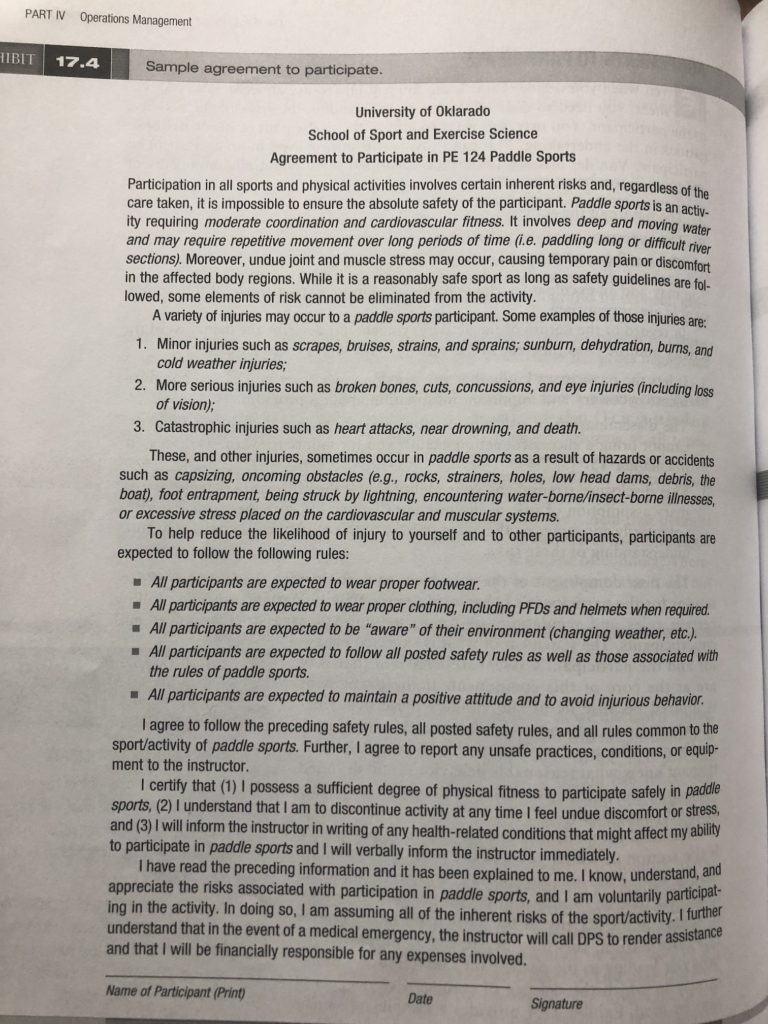Pleasantly surprised that this chapter is under 30 pages.
This chapter centers around information exchange, since failure to warn etc. can fall under negligence.
The language you use really matters, if you say the trail will be perfect you can be sued for it not being perfect. So get your marketing department hip with the times.
An exculpatory agreement is a contract where a person or entity that is legally “at fault” tries to excuse itself from fault (also comes in clause format). Can be in either a waiver or a release.
Tort law and contract law are at odds in this case because contracts can include waiving of rights including the right to sue, while tortious acts still create accountability that can be rectified with litigation. These two pillars are at odds and so resolving disputes can get messy.
The main way that waivers turn out to be valuable is when they have the right context and they contain the right content.
Context considerations:
- Minority
- Contracts entered into by minors are voidable
- Parents cannot give up their children’s right to sue
- Woodman and Hamill cases reflect opposite outcomes when injury occurs to a minor with a charge of negligence against the operator
- Public Policy
- Some jurisdictions will not uphold waivers
- Consideration whether an essential service is being provided
- e.g. waivers not valid in medical setting
- Tunkl vs UC Regents case sets precedent for college activity being an essential service
- A university cannot release itself from all liability with a required waiver
- The principle of unfair dominance is that a waiver that is one-sided will not be upheld
- e.g. if the activity is required and no alternative is provided
- Waivers cannot be used to violate a statuatory duty of care
- e.g. not caring for and maintaining the premises
Content considerations:
- Terms must be conspicuous
- Language must be clear, unambiguous, and explicit
- Language cannot exonerate beyond negligence
- Gross negligence, reckless behavior, and intentional torts cannot be waived away
- Decision whether to use exculpatory clause is important
- Must be consistent with mission of org
Sample Agreement to Participate:

